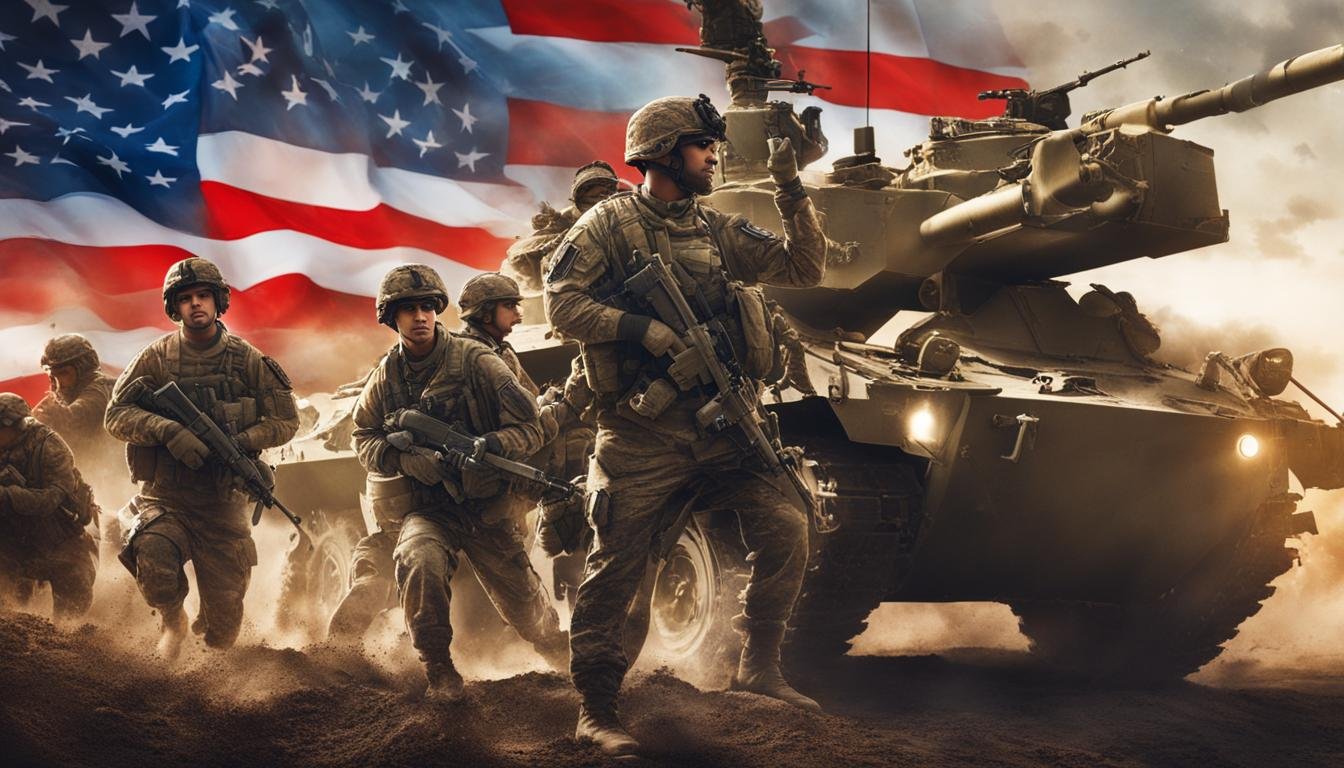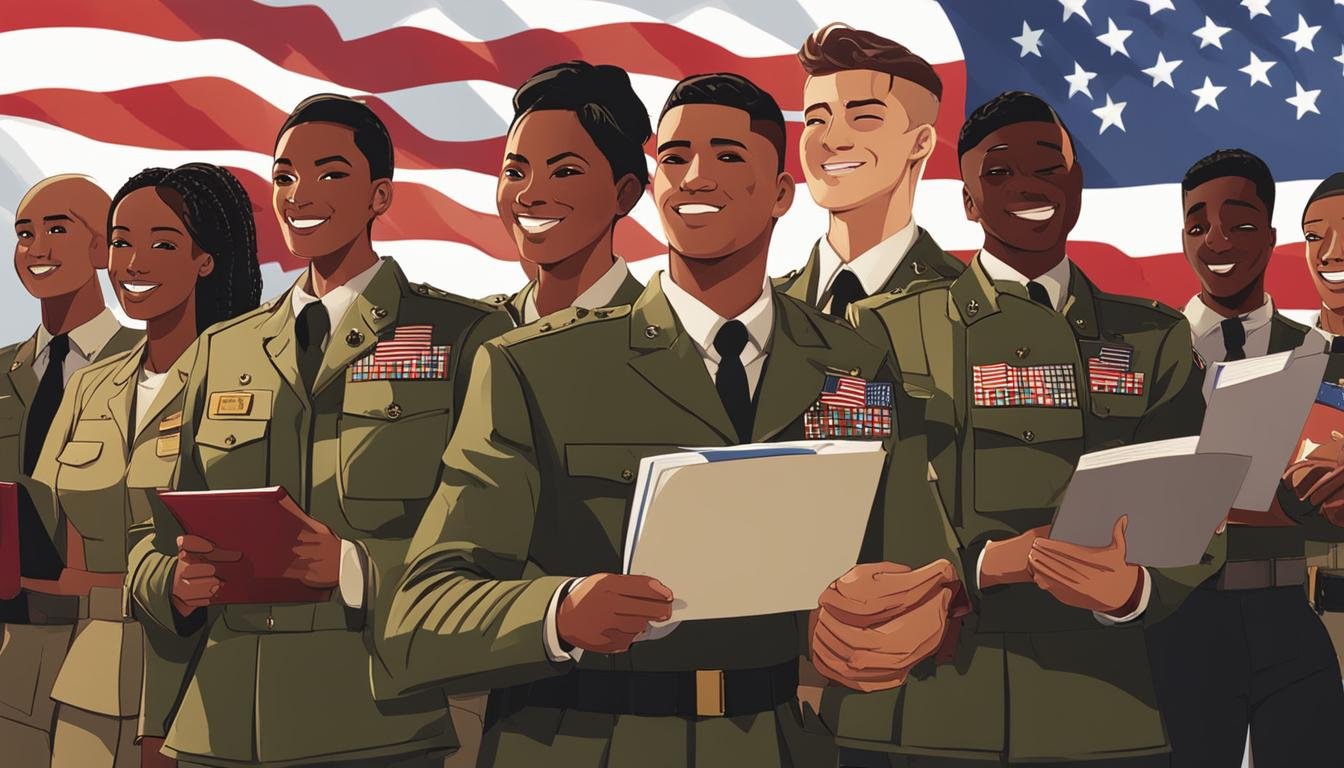When it comes to applying to college as a veteran, it’s important to be aware of the deadlines and timelines specific to your situation. As a veteran, you may have unique circumstances that require careful planning and preparation. Understanding the application process and meeting the requirements can help ensure a smooth transition to college life. Here’s what you need to know:
Key Takeaways:
- Stay informed about the college application deadlines for veterans.
- Familiarize yourself with the application process for veterans and gather all necessary documentation.
- Research the specific application requirements for veterans, such as military transcripts or service-related documents.
- Utilize resources available to veterans, such as the ACE Military Guide and veteran support organizations.
- Seek support from dedicated offices or advisors on campus who specialize in assisting veterans with the application process.
How to Apply as a Veteran

Applying to college as a veteran requires understanding the application process and meeting specific requirements. Here’s what you need to know:
1. Research College Application Deadlines
Start by researching the application deadlines for the colleges you are interested in. Each college may have different deadlines for veterans, so it’s crucial to stay organized and keep track of these dates. Make a list of the colleges you plan to apply to and note down their application deadlines.
2. Gather the Necessary Documentation
As a veteran, you may be required to provide additional documentation along with your college application. This may include your DD-214 form, which verifies your military service, or any relevant transcripts from military training programs. Be sure to gather all the necessary documents well in advance to avoid any last-minute complications.
3. Determine Eligibility for Financial Aid
Check if you are eligible for any financial aid programs for veterans, such as the GI Bill or scholarships specifically for veterans. Understanding your eligibility for financial support can help you plan your college application process and make informed decisions about where to apply.
By following these steps, you can navigate the college application process as a veteran and increase your chances of gaining admission to your desired college. Remember to stay organized, meet all deadlines, and seek guidance from college admissions offices or veteran support organizations if needed.
Evaluating Academic Performance for Veterans
When colleges evaluate the academic performance of veteran applicants, they consider various factors beyond just grades. Admission officers take into account the unique experiences and challenges faced by veterans, recognizing the valuable skills and knowledge they bring to the college community. Understanding how your academic performance is evaluated can help you prepare a strong application. Here are the key aspects colleges typically consider:
Prior Military Experience
Colleges recognize the discipline, leadership, and problem-solving abilities gained through military service. Admissions officers value the diverse perspectives and real-world experiences veterans contribute to the classroom. They may look for evidence of leadership roles, specialized training, or awards received during your military service.
Transcripts and Coursework
Colleges carefully review your academic transcripts to assess the rigor of your coursework and your overall academic performance. While grades are important, admissions officers also take into account the difficulty of your courses, particularly in subjects relevant to your intended major. If your grades do not reflect your abilities due to extenuating circumstances during your military service, it can be helpful to provide an explanation and any supporting documentation.
Standardized Test Scores
Many colleges require standardized test scores, such as the SAT or ACT, as part of the application process. However, veterans who have been out of high school for several years may find that their military experience has provided them with valuable skills that make up for lower test scores. Some colleges may even offer test-optional or test-flexible policies for veterans.
Letters of Recommendation
Letters of recommendation from individuals who can speak to your academic abilities and potential are an important part of the evaluation process. This could include professors, supervisors, or mentors from your time in the military. Ideally, these letters should highlight your dedication, intellectual curiosity, and ability to contribute to a college learning environment.
| Factors Considered in Evaluating Academic Performance for Veterans | Importance |
|---|---|
| Prior Military Experience | High |
| Transcripts and Coursework | High |
| Standardized Test Scores | Medium |
| Letters of Recommendation | Medium |
Can veterans still meet college application deadlines if they are applying for fee waivers?
Yes, veterans can still meet college application deadlines if they are applying for college application fee waivers veterans. Many colleges offer fee waivers for veterans to ensure they have access to higher education. It’s important for veterans to reach out to the colleges directly to inquire about fee waiver options and to submit their applications on time.
Conclusion
As a veteran, navigating the college application process can be made easier by understanding the specific deadlines and timelines, meeting application requirements, and seeking support from dedicated offices and resources.
Remember to stay organized, gather all necessary documentation, and utilize resources available to you, such as the ACE Military Guide and veteran support organizations. By following the proper deadlines and timelines, you can confidently pursue your college education as a veteran.
With the knowledge of college application deadlines and timelines for veterans, you can ensure that you submit your applications on time and maximize your chances of acceptance. Stay proactive and reach out to college admissions offices for any clarifications or assistance you may need.
Additionally, consider connecting with fellow veterans or joining support groups tailored to college applications. These networks can provide valuable insights, tips, and encouragement throughout the application process.



